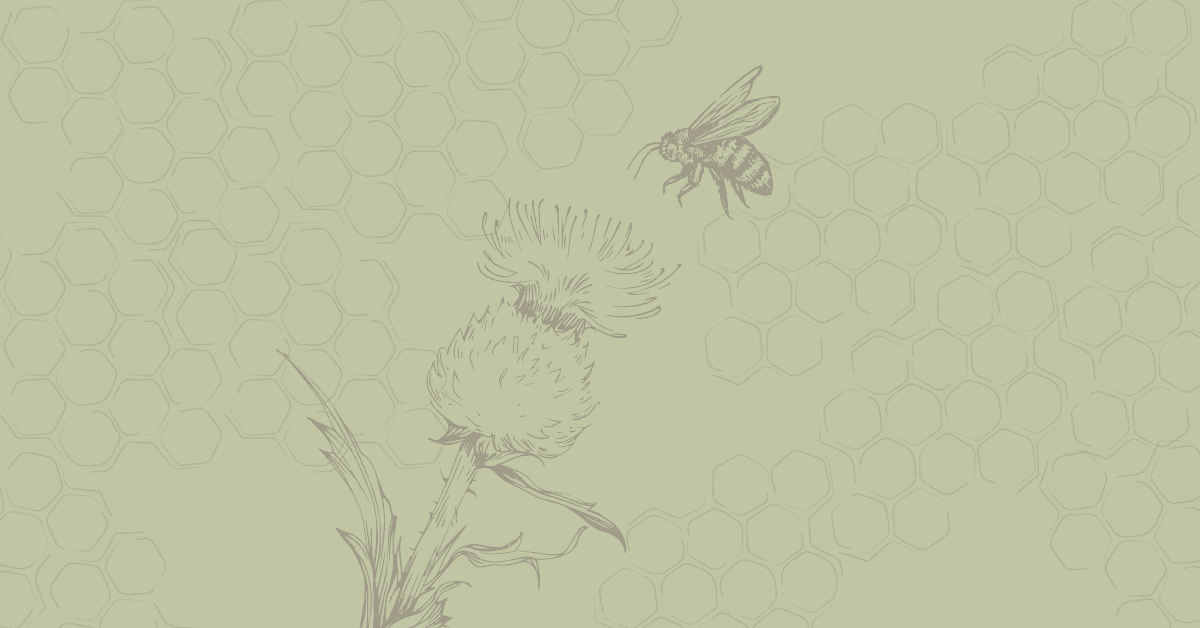Warmer weather has finally arrived! For many of us, we eagerly anticipate shedding winter coats and opting for short sleeves and floral dresses. As we’ve been cooped up indoors, we can’t wait to spend more time in nature.
But for others, springtime can be a nightmare. It’s tough to enjoy the season’s pleasures when your eyes are itchy and you’re congested. Desperate for relief, you’ve tried every allergy medicine under the sun just so you feel like yourself again. Maybe you’ve found one that’s worked, but you don’t want to rely on allergy medicine for the rest of your life. Or, you’ve wondered if there’s a better way to deal with the seasonal changes.
Believe it or not, there are holistic methods for relieving allergies. Let’s examine seasonal allergies and explore natural remedies you might not have considered.
Seasonal allergies explained
An allergic reaction is when the body detects otherwise harmless substances as a threat. The body releases histamines or other chemicals to eliminate the perceived threat and protect itself.1 Allergic reactions can vary from person to person, such as how a person reacts to an allergen or what someone is allergic to. For some, it might be cold-like symptoms, or they develop hives. Others have more severe reactions that could develop into anaphylaxis, which is life-threatening and requires immediate medical attention.
Allergies that develop from seasonal changes are called allergic rhinitis or hay fever. Hay fever earned its name from the hay-cutting season during the summer.2 Pollen, which comes from trees, grasses, and weeds, is a common culprit for a reaction. Most of the time, seasonal allergies are mild, but they still cause discomfort. However, hay fever could be worse for people with asthma who could have an asthma attack.
Now, you might be wondering why you’re affected by seasonal allergies and others aren’t. While that’s not entirely clear, there are likely factors contributing to your allergies, and it’s not just the pollen outside.
Seasonal allergies are a newer development
Allergic reactions are nothing new. In fact, allergies date back to ancient civilizations in Rome, Egypt, and China. However, hay fever developed after industrialization.3 That begs the question, what caused hay fever?
There are a couple of theories. One is that Western civilization grew up in “too clean” of an environment that stunted our immune systems. As such, our immune systems are all too eager to kill off bad substances, even those that aren’t harmful. That would explain why Western civilization has the most allergies and autoimmune diseases. Also, early antibiotic use has been linked to allergies since even the good bacteria are killed off.
Another theory, however, speculates that our cleaning products and environment are toxic.4 This means that our cleaning products are actually full of harsh chemicals that do damage to our immune system. While allergies may ebb and flow with the seasons, our bodies are continuously exposed to harsh cleaning products and artificial food additives. The outside substances aggravate our immune systems, which are already working overtime to combat the harmful chemicals.
In many ways, these opposing theories complement each other. Our immune system must be stimulated to work properly, but we’re also surrounded by many toxic ingredients that hurt us.
So, we want a solution to stop these allergies. But is allergy medicine the best answer?
The effects of allergy medicine
When fighting an allergen, the body releases histamines. Antihistamines are then used to combat allergic reactions.5 Yet antihistamines treat only the symptoms of an allergic reaction.
Some antihistamines, known as first-generation antihistamines like Benadryl, enter the blood-brain barrier and affect the body’s central nervous system. But, this part of the body’s receptors is also responsible for the body’s sleep cycle, so these antihistamines can cause drowsiness. More importantly, side effects could be liver damage, low blood pressure, and dizziness.
Other second and third-generation antihistamines, like Claritin and Allegra, are not as intense. They are less likely to enter the blood-brain barrier and have fewer effects on the central nervous system. They’re also not sedatives.
Still, these antihistamines can cause blurred vision, constipation, hives, swelling, or difficulty breathing. Even second and third-generation antihistamines could cause liver damage.
So, if you want to combat seasonal allergies, there are natural remedies that might be less risky and could even provide more relief.
Alternative methods
In general, doctors recommend avoiding allergens. But that’s not really possible for people with seasonal allergies. Even so, there are far too many benefits to being outside that it’s unwise to hide indoors.
Here are some ways you can fight seasonal allergies.
Gut health
Taking care of our gut microbiome is instrumental to a healthy immune system. In fact, 70 percent of our immune system resides in our gut.6 So, if we want to be able to fight off disease and allergies, we need to prioritize gut health.7
Probiotics
Probiotics are great for gut health, and they’re seen to help with allergies. These are found in yogurt, sauerkraut, kimchi, and kombucha.
Bromelain
Bromelain is found in pineapple and papaya, and it assists breathing by reducing swelling.8
Local honey
Consuming honey that’s from your area can help build seasonal allergy immunity.9 Plus, it tastes great!
Vitamin C and quercetin
These two things can stabilize histamine levels.10 They’re found in broccoli, cauliflower, green tea, and citrus fruits.
Butterbur
This herb has been shown to relieve seasonal allergies.11 It can also be used to aid asthma symptoms, reduce inflammation, relieve migraines, and promote heart and brain health. It can be easily taken as a tea or in a capsule.
Spirulina
This blue-green algae was shown in a study to protect against allergies.12 Additionally, spirulina can boost iron levels, improve heart health, manage diabetes, and improve oral hygiene. It can be ground to a powder, which can be mixed in a smoothie or taken in a capsule.
The right essential oils
Essential oils like peppermint, eucalyptus, and frankincense can help alleviate allergies.13
Acupuncture
Some people have found relief from their allergies in acupuncture. It’s also great for stress relief!
An air filter or dehumidifier
You might also consider an air filter or dehumidifier to filter out pollen and limit mildew and mold, which are common allergens.
Get “cleaner” cleaning products.
Start implementing cleaning products with fewer harsh chemicals. Some of the cleaning products might be aggravating your immune system.14

Conclusion
Seasonal allergies are a newer development, so it’s not that crazy to think it would be possible to alleviate your affliction naturally. By making slow adjustments with a holistic approach, you could be on your way to no longer dreading seasonal changes.








0 Comments